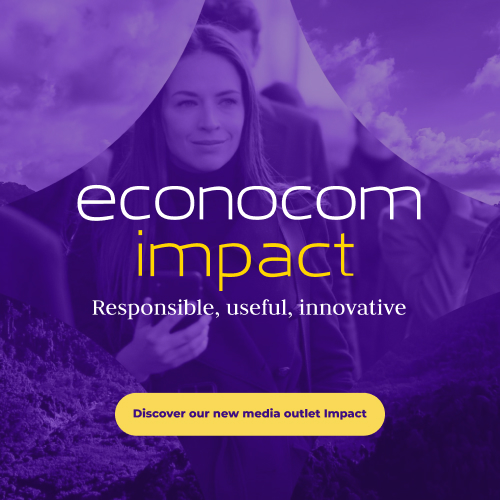
Richard Bury
What does your digital responsibility policy at EDF involve?
We don’t want to develop a specific policy in digital responsibility. Our policy is to incorporate digital responsibility into all of EDF’s policies (pledges, procurement, projects, skills, etc.) to make the EDF group’s digital transformation at once low-carbon, energy-efficient, inclusive, ethical and value-added environmentally, for its employees and its clients.
The circular economy is at the heart of tomorrow’s business models. Do you also apply it to digital technology at EDF?
Yes, we apply the principles of the circular economy. For example, we give all IT hardware a second life almost systematically. This can take the form of donations to charities, schools and local authorities.
How do you assess the impact of digital technology at EDF?
Measuring the environmental impact of digital technology is a highly complex subject that can take up a lot of resources. We try to be pragmatic in this matter. We generally use data from manufacturers and from institutes like France’s ecological transition agency ADEME and the Institut du Numérique Responsable, though we’re aware they’re not always relevant in the context of EDF’s IT system.
How do you expect your ecosystem – suppliers, partners, clients – to contribute to your actions in digital responsibility?
From our partners we mainly expect innovations so we can advance together and transparency on the environmental impact of the services and equipment they offer.
How do you raise awareness about this issue among EDF’s different departments and employees?
A priority action in our digital responsibility programme is to make the individual digital experience ever more responsible. Other than communicating about digital responsibility and raising awareness of it, we organise fun events through the Cyber World Cleanup Day to help our employees apply eco-friendly digital practices.
